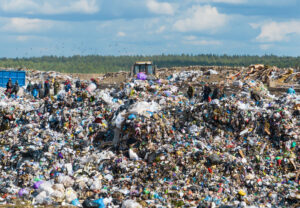Waga Energy signs RNG agreement for Indiana landfill site

As part of this agreement, Waga Energy will fund construction of an RNG production facility using its patented WAGABOX® technology, to upgrade landfill gas (LFG) into pipeline-quality RNG.
Waga Energy will operate the RNG Facility for a 20-year initial term, supporting the landfill’s commitment to optimizing methane capture and to maximize renewable energy production.
Once commercial operations are achieved in 2025, the WAGABOX unit is expected to deliver over 200,000 MMBtu of RNG per year (55 GWh/y).
Production will be injected directly into the local natural gas grid through a dedicated interconnect to be built as part of the project.
The Decatur Hills Landfill WAGABOX unit will process up to 1,000 scfm of LFG (1,600 m3/h) into RNG with an environmental benefit avoiding over 13,700 tons of CO2eq annually.
This is equivalent to cutting emissions from 1.4 million gallons of gasoline per year based on the United States Environmental Protection Agency (EPA) calculation methodology, according to Waga Energy.
Guénaël Prince, CEO of Waga Energy Inc., said: “We are extremely proud to launch this new RNG production project with Decatur Hills Landfill, a company that purposely operates with humility and hard work; commitments and high standards that we fully share.
"Thanks to the WAGABOX solution, the gas resulting from the breakdown of organic matter contained in waste, which until now was flared, will be used to supply the local community with clean, local and renewable gas”.
Curt Publow, environmental compliance manager for Decatur Hills Landfill, commented: “Decatur Hills is very excited to be part of this great clean energy project. It has taken a long time to find the right partner, and we think that Waga Energy has some unique solutions that will bring this resource from the landfill to the energy grid as a sustainable, renewable fuel.”


















